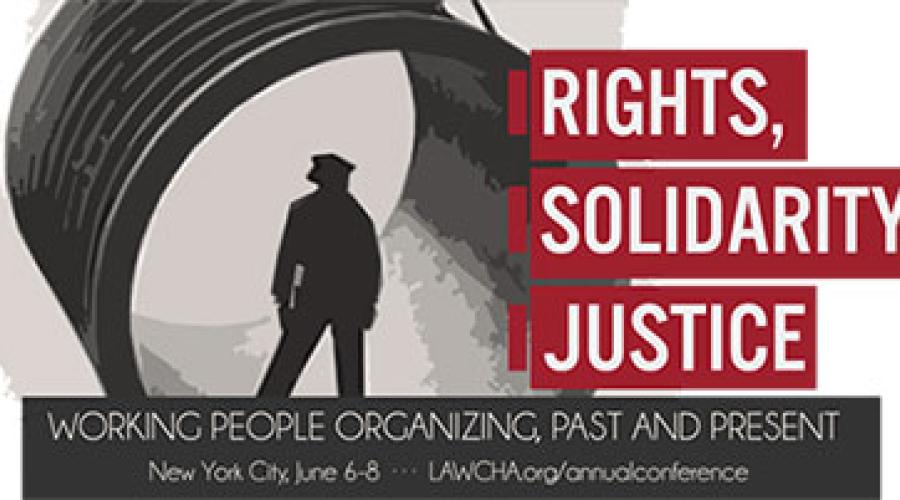
Rights, Solidarity, Justice
The Worker Institute at Cornell is co-sponsoring the 2013 conference of the Labor and Working-Class History Association.
"Rights, Solidarity, and Justice: Working People Organizing, Past and Present," will be held June 6-8 in Manhattan at the Graduate Center for Worker Education. About 500 are slated to participate.
Professor Ileen DeVault, a Worker Institute executive committee member, said the theme of the conference "is perfect for the Worker Institute at Cornell."
"LAWCHA," as the association is known, organized in 2000 to connect historians' academic interests with worker activism, said DeVault, who has served on the organization's board.
"One of the main strengths of the Worker Institute is this combination of labor education and activism with academic research. What could be better for bringing these two organizations together?"
The institute's New York City office, DeVault said, "will gain a national forum without leaving home."
Institute associates speaking on conference panels include:
- "Precarious Workers in the Arts and Entertainment Industry" (Lois Gray and Maria Figueroa);
- "Organizing Contingent Labor: Lessons from the Past and Struggles of the Future" (Ileen DeVault and Jeff Grabelsky);
- "Faculty Responses to University Corporatization: the Potential for Unionization and Collective Action" (Risa Lieberwitz and Jeff Grabelsky);
- "Excluded and Precarious Workers in the U.S." (Veronica Martinez-Matsuda and Maria Figueroa);
- "Gaining Pride at Work: Queer Union Experiences" (Linda Donahue);
- "Following the Women: Working Women, the Labor Movement and Economic Justice" (Ileen DeVault).
As members of the LAWCHA board, speakers at the annual conferences and presenters of the Cornell- LAWCHA Taft Labor History Prize, Cornell ILR faculty at the Worker Institute have worked with the group for more than 10 years.
On its website, LAWCHA says its membership includes scholars, teachers, students, labor educators and activists who seek to promote public and scholarly awareness of labor and working-class history through research, writing and organizing.


